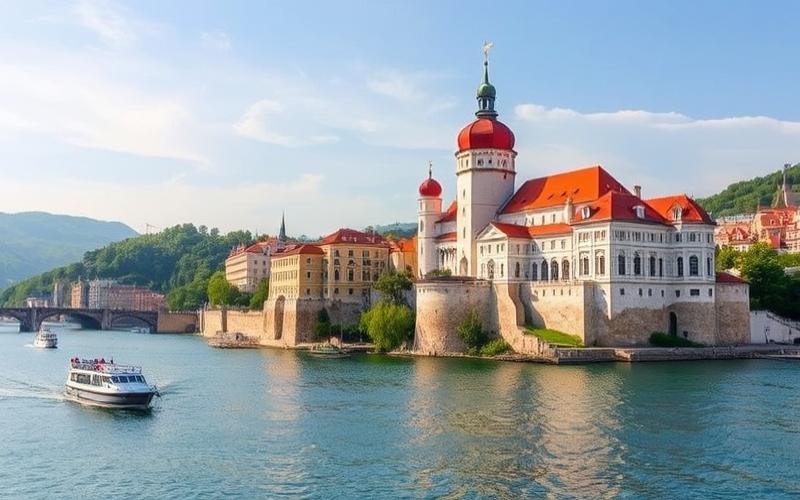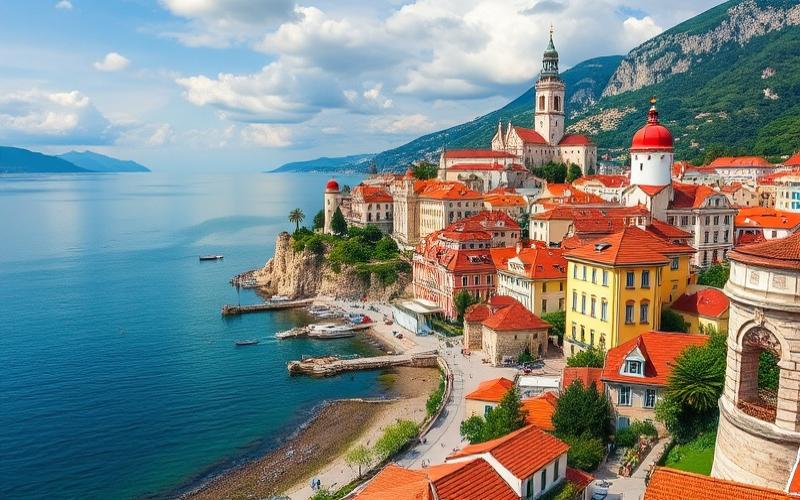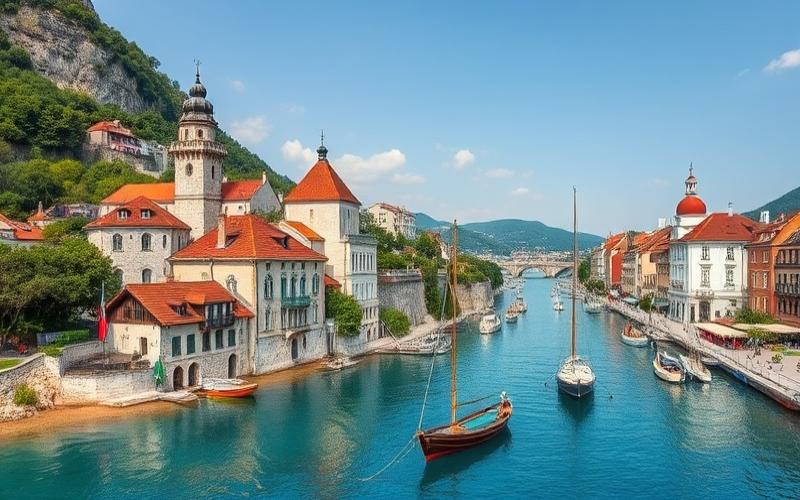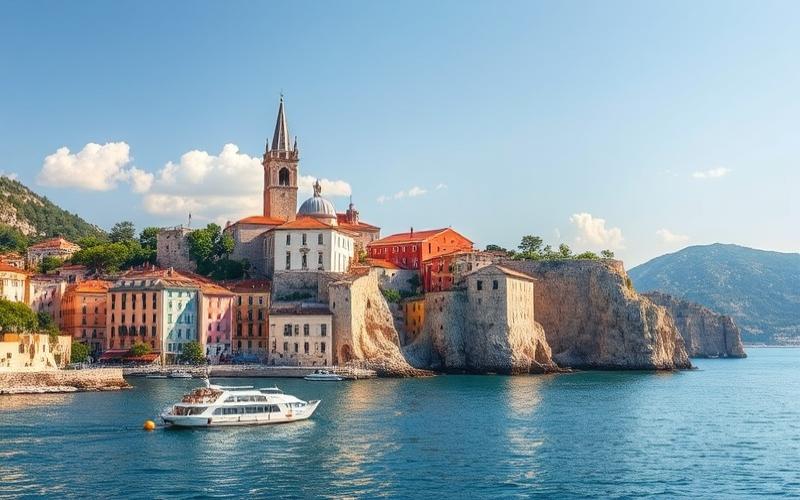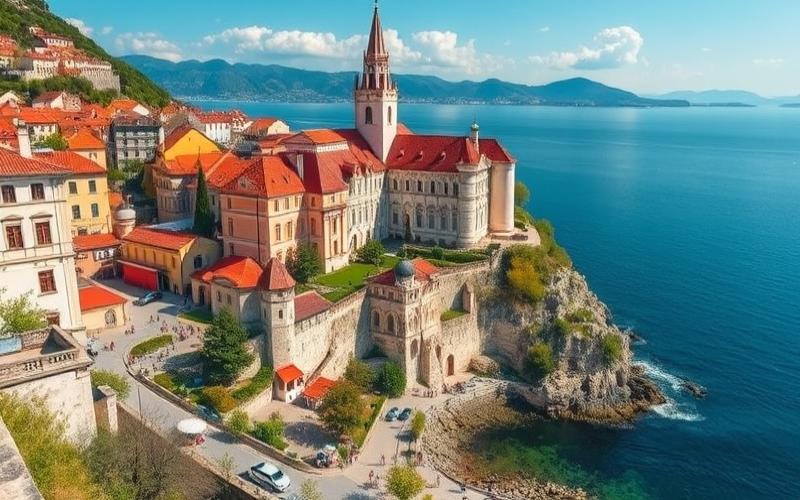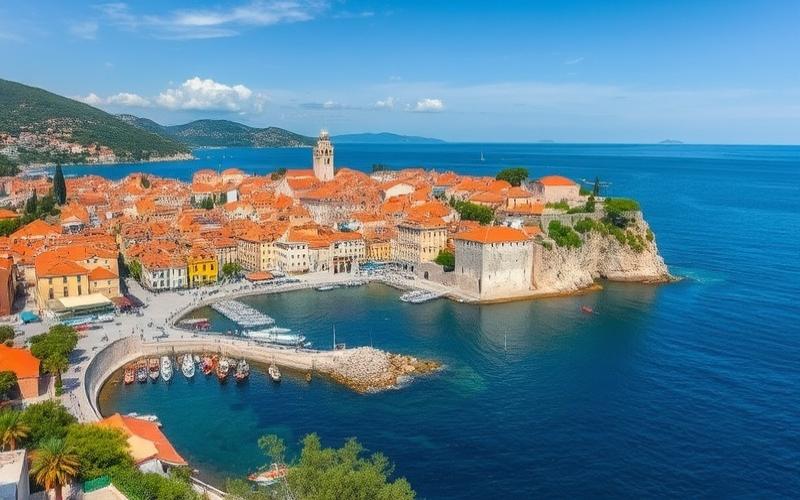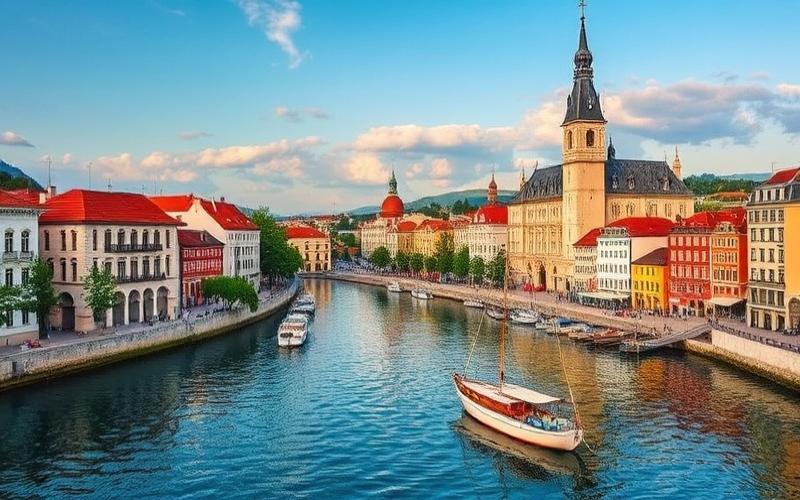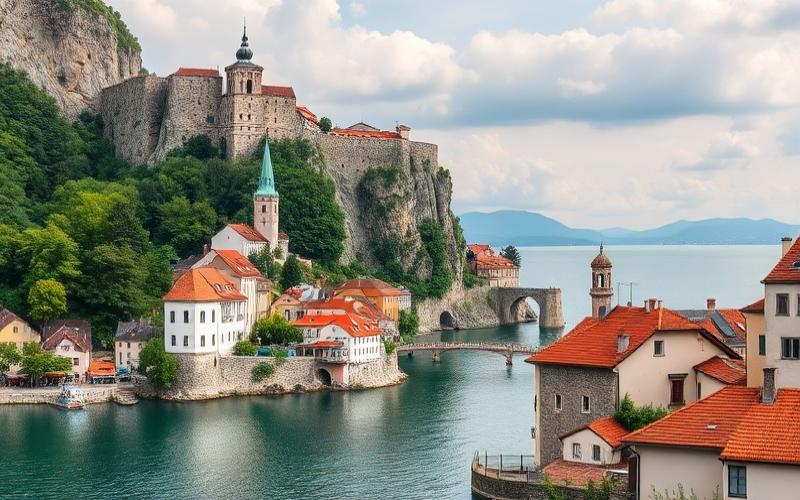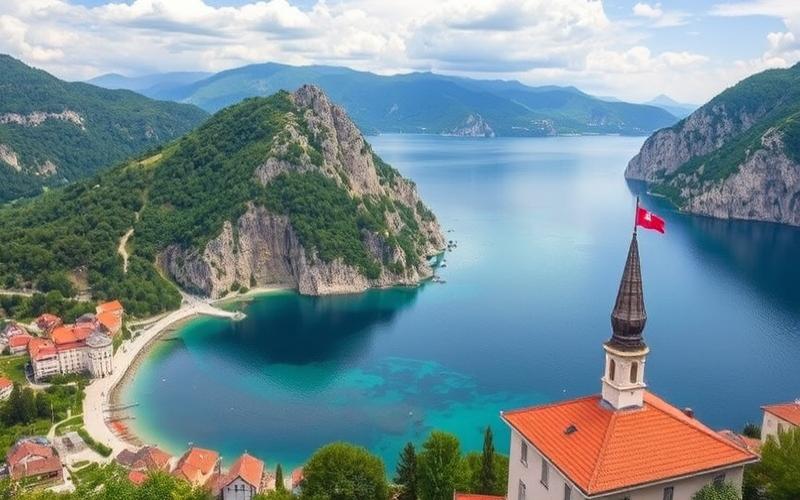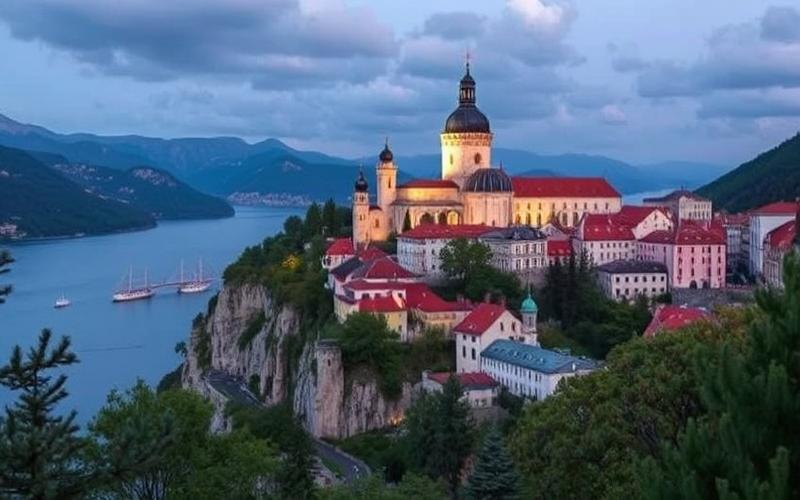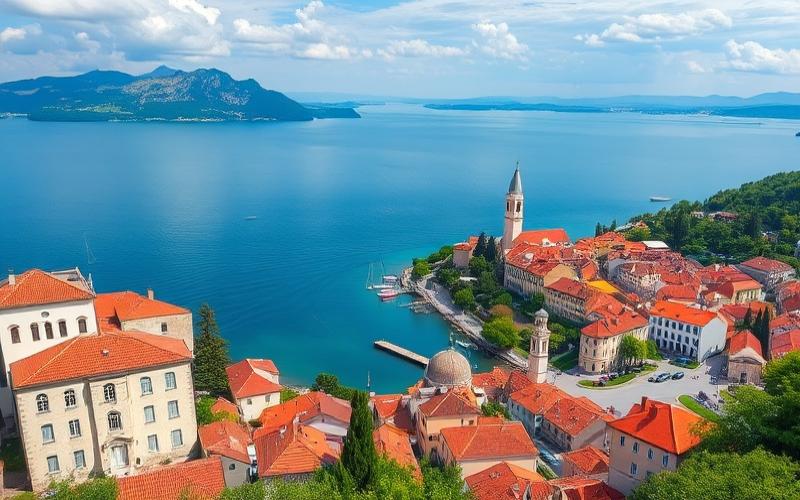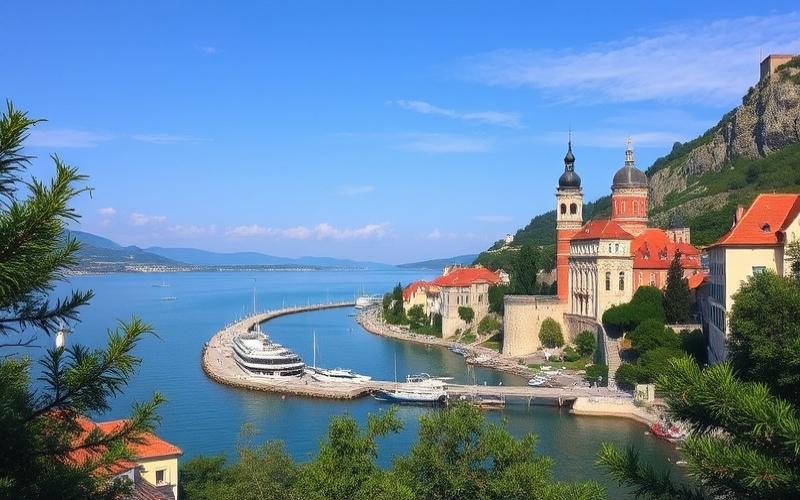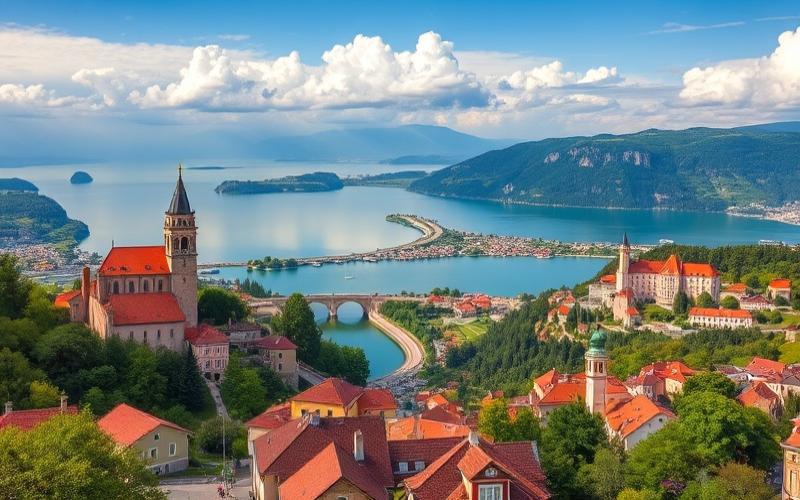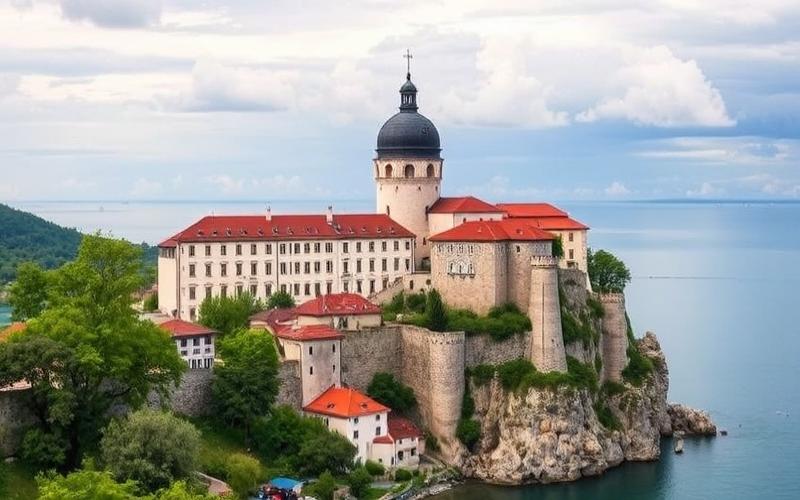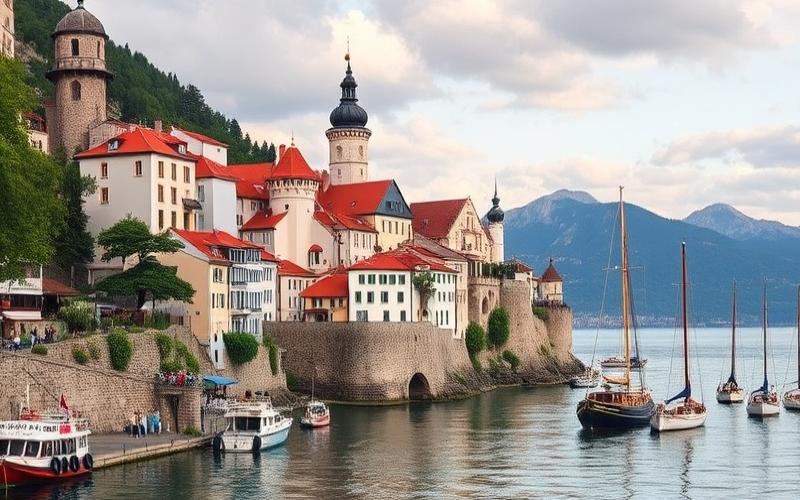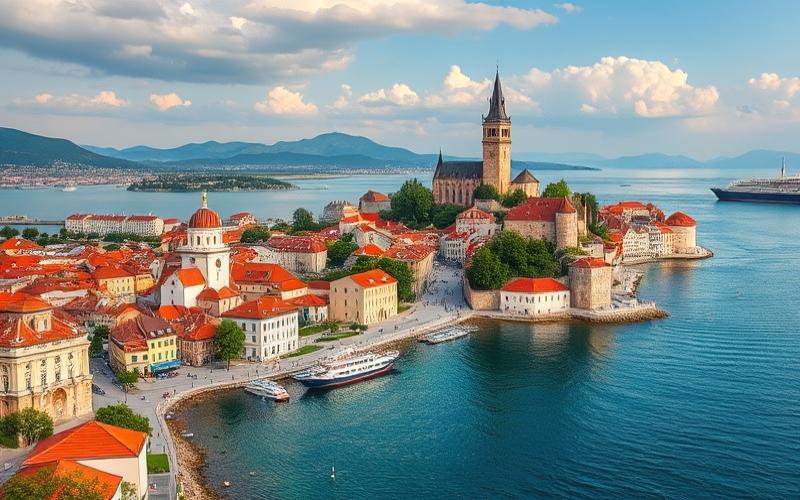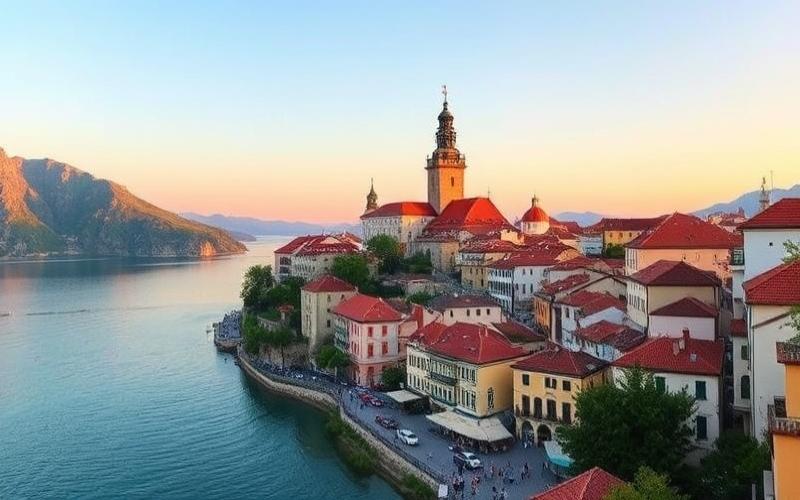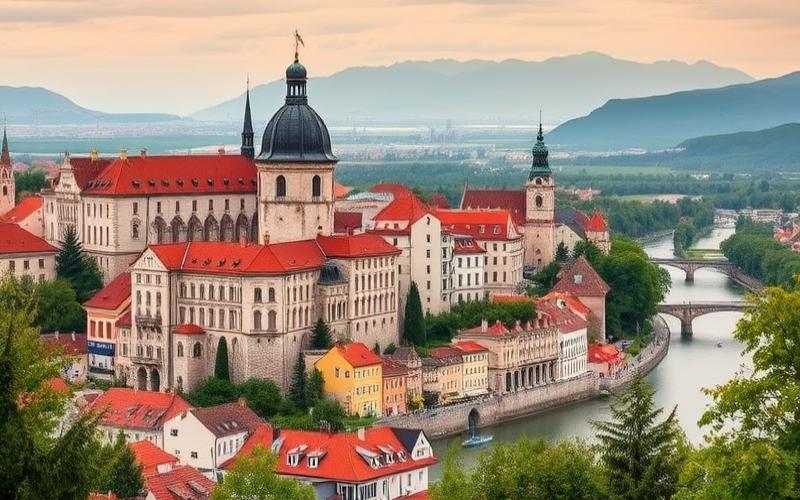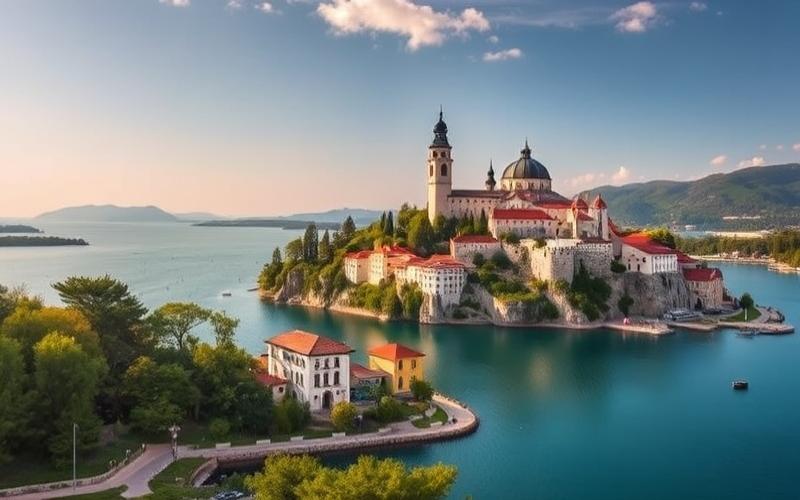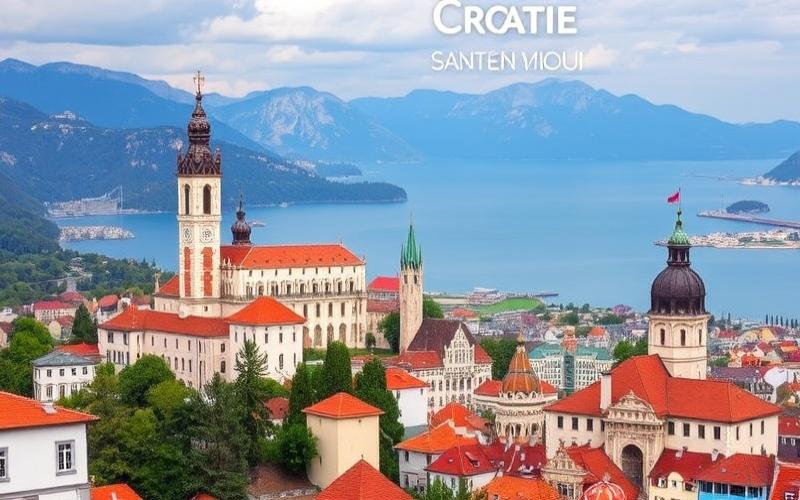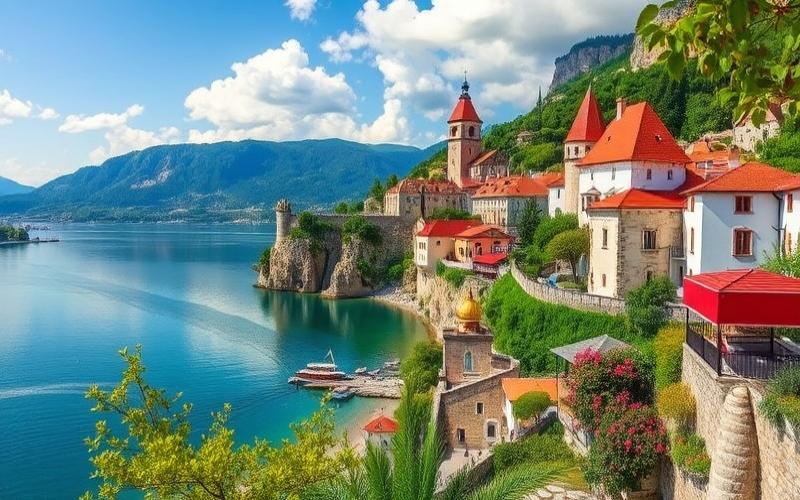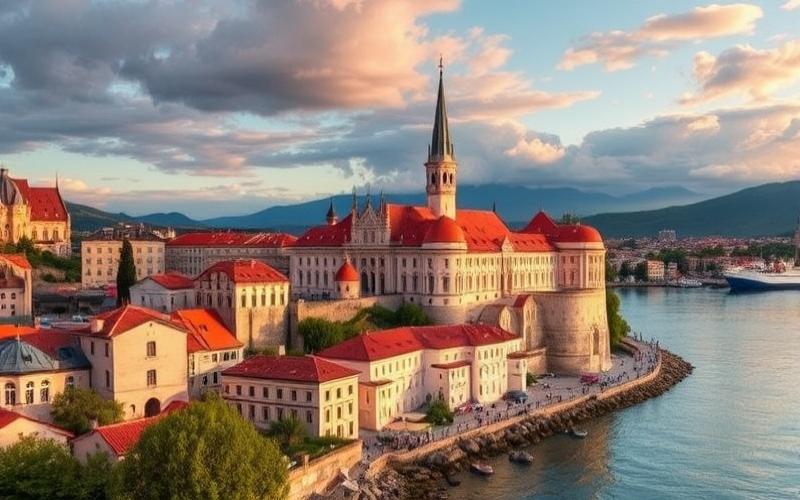
 Published on and written by Cyril Jarnias
Published on and written by Cyril Jarnias
With its picturesque landscapes and rich cultural history, Croatia attracts many expatriates each year seeking new life adventures. However, before taking the leap, it’s crucial to understand the cost of living in this economically growing country.
Compared to other popular European destinations, Croatia offers excellent value for money, although certain aspects such as real estate and food vary considerably by region.
From Zagreb, the dynamic capital, to Dubrovnik, the pearl of the Adriatic, daily costs can surprise with their marked regional differences. This exploration of common expenses will provide valuable insight for planning a successful transition to life in Croatia.
Understanding the Cost of Living in Croatia: A Detailed Overview
The cost of living in Croatia in 2025 is influenced by several major factors, including housing, food, transportation, and utilities. Since adopting the euro in 2023 and the high inflation of the past two years, prices have increased by 20 to 50% across sectors, particularly affecting food, fuel, and services. Wages, however, have seen little change, increasing pressure on residents’ purchasing power.
Housing
Housing represents one of the most significant expenses. In 2025, the average price for an apartment in the city center is about €1,023 per month, compared to €766 in the suburbs. In Zagreb, the cost is lower than in Split or Dubrovnik, where prices have skyrocketed, sometimes reaching €3,500 to €5,000 per square meter for mid-range properties. Rural areas remain significantly cheaper, but the supply is limited and often less modern.
| City | City Center Apartment (€/month) | Suburban Apartment (€/month) |
|---|---|---|
| Zagreb | 950 | 650 |
| Split | 1,100 | 750 |
| Dubrovnik | 1,250 | 800 |
| Rural Area | 500 | 350 |
Food
Food has seen significant increases, especially for basic products. A meal at a standard restaurant costs about €10, compared to €15 in France. Supermarkets offer affordable local products, but imports remain expensive. Croatian eating habits, focused on fresh and local products, can help reduce expenses if one prioritizes local markets.
Transportation
Fuel prices are similar to those in France, around €1.50 per liter. Urban public transportation is cheap but less developed in rural areas. Many Croatians use their cars, increasing maintenance and parking expenses, particularly in large cities where parking rates have risen sharply.
Utilities
Internet subscriptions cost about €27/month, 11% less than in France. Utilities are generally accessible, but quality may vary by region. Electricity and water bills are moderate, but recent increases have impacted budgets.
Comparison with Other European Countries
| Category | Croatia (€) | France (€) | Difference (%) |
|---|---|---|---|
| Average Monthly Salary | 1,259 | 2,343 | -45 |
| City Center Apartment | 1,023 | 1,418 | -27 |
| Gasoline (1 liter) | 1.50 | 1.80 | -17 |
| Lunch at Restaurant | 10 | 15 | -33 |
| Movie Ticket | 7 | 12 | -41 |
| Internet Subscription | 27 | 30 | -11 |
The cost of living in Croatia remains 16 to 25% lower than in France, according to sources, but local purchasing power is 28% lower. Major cities like Zagreb, Split, or Dubrovnik are more expensive than rural areas, with differences reaching up to 33% for certain expenses.
Cultural Specificities
Croatians prioritize fresh products, family meals, and local markets, which can reduce food expenses for those adopting this lifestyle. Public transportation is less used outside major cities, encouraging car ownership. Leisure activities often focus on nature, the sea, and free activities, limiting cultural expenses.
Health and Education
The public healthcare system is accessible to expatriates, but wait times can be long. Mandatory health insurance costs about 15% of gross salary. Private care is faster but more expensive. For education, public schooling is free through high school, but international schools are expensive, with annual fees reaching up to €10,000.
Inflation and Impact on Prices
Inflation has strongly impacted Croatia since 2022, with price increases of 20 to 50% across sectors. The switch to the euro has accentuated this trend, as providers took the opportunity to revise their rates upward. Wages haven’t kept pace, reducing purchasing power and pushing many Croatians to leave the country or adapt their lifestyle.
Tips for Expatriates
- Prioritize rural or suburban areas to reduce housing costs.
- Adopt local eating habits to limit expenses.
- Budget for a car if living outside major cities.
- Subscribe to private health insurance for faster access to care.
- Consider international schools as an expensive but necessary option for some profiles.
In summary, Croatia offers a moderate cost of living compared to Western Europe, but regional disparities and recent inflation make budget management essential, especially for expatriates planning to settle long-term.
Good to Know:
In Croatia, the cost of living is generally lower than in Western European countries, but prices in Zagreb and Split can be comparable to some Spanish cities; expenses also vary by lifestyle, with a local preference for food markets and public transportation. Expatriates benefit from affordable healthcare services, but private insurance is recommended for comprehensive coverage.
Price Comparison: Croatia vs. Other Popular Destinations
| Country | Cost of Living Index | Rent (1 Bedroom Center, €/month) | Transportation (Monthly Pass, €) | Food (Meal, €) | Utilities (€/month) | Local Tax | Service Fees | Quality/Lifestyle |
|---|---|---|---|---|---|---|---|---|
| Croatia | 48.6 | 500–700 | 40–50 | 7–12 | 120–160 | Income Tax: 20–30% | Affordable banking, healthcare fees | Good quality, intermediate cost |
| Spain | 48.5 | 700–1,000 | 40–60 | 10–15 | 120–180 | Income Tax: 19–47% | Moderate banking and healthcare fees | High quality, regional diversity |
| Portugal | 43–45 | 700–1,000 (Lisbon), 400–600 (Porto) | 40–50 | 8–12 | 100–130 | Income Tax: 14.5–48% | Notary fees, affordable healthcare | Very good, lower EU cost |
| Thailand | 35–38 | 350–600 (Bangkok), 200–400 (province) | 25–35 | 2–5 | 50–80 | Income Tax: 0–35% | Banking fees for foreigners | Good standard, low cost, private healthcare |
Detailed Analysis by Expense Category:
Housing
- Croatia: Rents are affordable outside tourist areas (e.g., Split, Dubrovnik more expensive).
- Spain: Strong variation between Madrid/Barcelona (more expensive) and secondary cities.
- Portugal: Lisbon very expensive, Porto and provinces more accessible. Coliving popular among expatriates.
- Thailand: Very competitive rents outside Bangkok center or tourist areas, modern options at reduced prices.
Transportation
Europe: Reliable public transport systems, moderate cost (monthly pass €40–60).
Thailand: Less developed but very affordable (metro, buses, cheap taxis).
Food
Croatia/Spain/Portugal: Affordable local products, restaurants more expensive in tourist centers.
Thailand: Street food and local restaurants very economical.
Utilities (Electricity, Water, Internet)
Europe: Between €100 and €180 depending on home size and region.
Thailand: About €50–80, but air conditioning can increase the bill.
Local Taxes
Croatia: Progressive scale from 20 to 30%.
Spain/Portugal: Progressive scale, higher rates in Spain.
Thailand: Low rates for low incomes, many expatriates benefit from exemptions or tax agreements.
Service Fees
Europe: Moderate banking fees, public healthcare system (often partially free).
Thailand: Higher banking fees for non-residents, private healthcare recommended.
Significant Regional Variations:
- Spain: Cost of living much higher in Madrid, Barcelona, Balearic Islands vs. Andalusia or Galicia.
- Portugal: Lisbon and Algarve very popular thus more expensive, interior and north much cheaper.
- Thailand: Bangkok and tourist islands expensive, northern regions (e.g., Chiang Mai) very cheap.
- Croatia: Adriatic coast more expensive, Zagreb and interior more accessible.
Quality and Lifestyle:
- Spain and Portugal: High quality of life, pleasant climate, easy access to healthcare, modern infrastructure.
- Croatia: Good cost/quality of life balance, high safety, easy access to nature.
- Thailand: Quality of life dependent on health budget (plan for private insurance), low cost allows superior comfort, tropical climate and vibrant social life.
For an expatriate, Portugal and Thailand offer the best cost/quality of life ratio, while Spain attracts with its diversity but requires a higher budget in major cities. Croatia positions itself as an interesting compromise, especially for those seeking safety and proximity to Central Europe.
Good to Know:
In Croatia, average housing costs are often lower than in Spain and Portugal but higher than Thailand, while utilities remain relatively affordable, with VAT at 25%. Although food is cheaper than in Western Europe, it can vary by region, with Dubrovnik generally more expensive than Zagreb.
Budget Planning: How Much to Budget for Moving to Croatia?
To establish an expatriation budget for Croatia, it’s essential to anticipate all costs related to relocation, daily expenses, and any administrative procedures specific to expatriation.
Essential Elements to Consider:
Monthly Rent in Major Cities:
- Zagreb (city center): €500–1,023
- Zagreb (outside center): €350–766
- Split (city center): €550–1,023
- Dubrovnik (city center): often above €1,000, especially in high season
- National average (city center): about €1,023; suburbs: €766
Setup and Moving Expenses:
- International move (France–Croatia): €2,000 to €5,000 depending on volume and distance
- Purchase of basic furniture/appliances: €1,000 to €3,000
- Security deposit (1 to 2 months’ rent)
Administrative Fees:
- Residence permit: €50 to €100
- Temporary residence card: €30 to €70
- Document translations and legalizations: €50 to €300
Regular Expenses to Budget For:
| Category | Croatia (€/month) | France (€/month) | Difference |
|---|---|---|---|
| Rent (city center) | 1,023 | 1,418 | -27% |
| Cost of Living (single) | 1,414 | 1,710 | -20% |
| Family (4 people) | 3,739 | 4,766 | -22% |
| Internet | 27 | 30 | -11% |
| Transportation Pass | 40–60 | 75 | -40% |
| Restaurant Meal | 10 | 15 | -33% |
| Grocery Shopping | 200–350 | 300–450 | -25% approx. |
| Gasoline (1 L) | 1.5 | 1.8 | -17% |
- Utilities (electricity, water, heating): €120–180/month for a standard apartment
- Health and Insurance:
- International private health insurance: €50–150/month
- Local supplementary insurance (if resident): €20–40/month
- Schooling (international schools):
- €5,000 to €12,000/year/child depending on institution
- Other Expenses:
- Mobile phone: €10–20/month
- Leisure (movies, sports, outings): €50–150/month
Cost of Living Comparison Croatia vs. France:
| Expense Category | Croatia | France | Difference |
|---|---|---|---|
| Standard of Living | 18–32% cheaper | Reference | Significant savings |
| Rent | 20–30% cheaper | Reference | Important savings |
| Food | 15–25% cheaper | Reference | Advantageous prices |
| Transportation | 20–40% cheaper | Reference | Reduced costs |
| Leisure | 25–35% cheaper | Reference | Optimized leisure budget |
Good to Know:
The cost of living in Croatia is generally lower than in France, with savings reaching 18 to 32% across expense categories. This significant difference makes expatriation to Croatia particularly attractive from a budgetary perspective.
Disclaimer: The information provided on this website is for informational purposes only and does not constitute financial, legal, or professional advice. We encourage you to consult qualified experts before making any investment, real estate, or expatriation decisions. Although we strive to maintain up-to-date and accurate information, we do not guarantee the completeness, accuracy, or timeliness of the proposed content. As investment and expatriation involve risks, we disclaim any liability for potential losses or damages arising from the use of this site. Your use of this site confirms your acceptance of these terms and your understanding of the associated risks.

